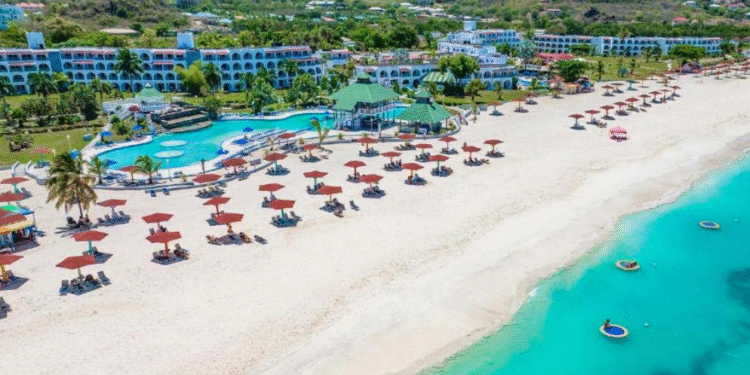Safeguards, Transparency, and Compounding Growth
Prime Minister Gaston Browne reiterated that the ‘Jolly Beach–Social Security initiative’ was not a speculative gamble but a carefully structured investment. He outlined the multiple safeguards that had been built into the plan:
- Professional fund managers would oversee operations.
- An escrow account would ensure independent custody of receipts.
- Parliamentary reporting would guarantee transparency.
Speaking on the Browne and Browne show on Saturday, PM Browne stressed that these mechanisms were already documented in detail and would provide the public with assurance that the project was being executed with full accountability.
Importantly, he described how reinvestment of profits into further ventures could create a compounding effect, generating returns of 40% annually or more. The plan also emphasized diversification across real estate, liquid assets, and securities—far from the speculative ventures of “options or Bitcoin” suggested by critics.
A Transformed Jolly Beach
Turning to the property itself, PM Browne highlighted that Jolly Beach was no longer the “relic” left behind by past administrations. Already, EC$15 million had been invested, with another EC$20+ million set aside for improvements. The resort, once in decline, was being revived as a cornerstone of Antigua and Barbuda’s tourism and investment strategy.
The Forward: A Vision for National Transformation
The Prime Minister then read from the Foreword of the Jolly Beach project document, situating the initiative within a broader vision for Antigua and Barbuda.
Back in 2014, his administration had embarked on a mission not merely of recovery, but of transformation—to build Antigua and Barbuda into a Caribbean economic powerhouse. This transformation required rejecting the colonial, extractive model of development and embracing what PM Browne termed ‘entrepreneurial socialism’ or ‘empowerment capitalism’.
“Under this paradigm, the state partners with the private sector to generate profits, which are then redistributed through taxes and dividends to drive social and economic development. The government must itself be entrepreneurial—seeking out strategic investments that keep wealth circulating within the country,” the prime minister argued
Building Ownership and Self-Reliance
The nation’s leader stressed that Antigua and Barbuda’s future required ‘creativity, ownership, and self-reliance’. This philosophy had already borne fruit:
- West Indies Oil Company (WIOC), once foreign-owned, was now majority-owned by the government and people. Over the last decade, WIOC had contributed over EC$160 million in retained profits and dividends to national development.
- Through government policy, Canadian banks exiting the country were required to sell branches to domestic banks, which collectively posted EC$110 million in profits last year. These funds now remained in Antigua and Barbuda rather than being repatriated abroad.
The next logical step, PM Browne explained, was to apply the same empowerment model to Jolly Beach. By transferring the resort to Social Security, renovating it, and expanding operations, the scheme would generate sustainable profits, strengthen pensions, and ensure that wealth stayed within the nation.
Rejecting Dependency and Embracing Local Capacity
The prime minister expressed astonishment at opposition calls to sell Jolly Beach to foreign investors. Such a move, he argued, would perpetuate “mental slavery” and send profits overseas.
Instead, he insisted that Antiguans and Barbudans possessed the intellectual capital, creativity, and resilience to manage such assets successfully. With significant national investments already made in education and training, there was no reason to assume that only foreign “godfathers” could ensure success.



